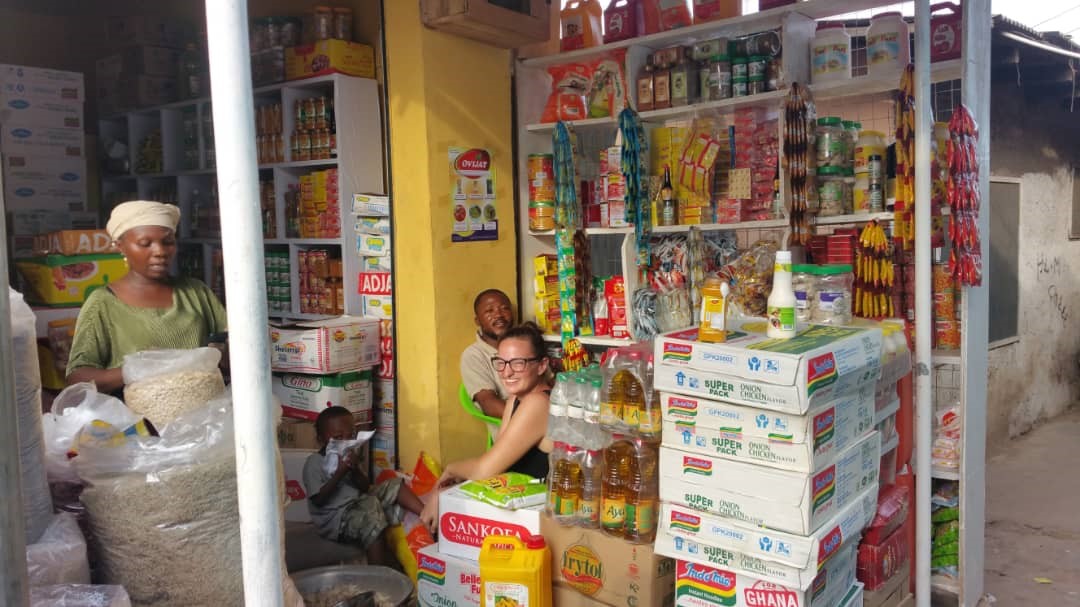Leaving Accra

The other night while cooking dinner, I came across a bag of spices (kayan dadi), lovingly tied in a clear plastic bag. A parting gift from my friend (abuyana) the day before I left Accra unexpectedly. As I untie the bag, the scent (kamshi) overwhelms me: cinnamon, cloves, bay leaf, coriander. Her special mixture. It’s strange now, smelling this smell in my dark kitchen, windows closed because it’s still not quite spring and the air is still laced with winter. I close my eyes and the scent returns me to her shop (shagonta), tables piled high with plastic bags, brimming with rosemary, ground hot pepper, mustard seed, nutmeg, and more that don’t quite have a name in English. I passed long hours at my friend’s shop, hearing the hum of commerce in the market (kasuwa), the cheerful exchanges in Hausa, Twi, English, and more from vendors and customers. The sun, so bright and hot, but welcome with its warm, ubiquitous affection.
I came to Accra 6 months ago to do my doctoral research in linguistic anthropology. The tricky part of doing work in social science is that it is nearly impossible to separate your work from your life. In fact, it’s preferable to dismiss the illusion of this binary all together. My work was my life. The joy of research came from my relationships with people, carefully fostered over the course of years: patience, kindness, trust. When I received the email from my university that they were calling us all home immediately, I could feel my mind begin to race until it blurred. My life was here. My home was here. Would I have to leave? Definitely not. There had to be some other way. When would I have to leave? Certainly they would give us at least a month to tie up loose ends, say goodbye to loved ones, make peace with this sudden fracture.
Days later, I hugged another friend at the airport as we quickly said goodbye in the taxi. My eyes crinkled above my facemask in a bittersweet smile, trying to remain optimistic that I would return someday soon. My mind was blank as I rolled my suitcase to the check-in counter, going through the motions I knew so well after visiting this place for years. The plane ride was a practice in vigilance. Don’t touch your face. Don’t remove your gloves or your facemask unless you absolutely have to. If you have to take off your gloves, don’t forget to sanitize your hands. Don’t forget to wipe down your seat, the arms of the chairs, the window, every surface you will touch over the next 10 hours. When the plane touched down, I felt a flurry of relief that I was home, but also dread, entering an entirely new world. Not the same one I had left just months before. Places were desolate, de-peopled. Everything shrouded, closed, lights off. Loneliness is a rare feeling in Accra. As a friend told me, “A person is happy when he sees his fellow human being.” As I saw my family’s car approach at the airport, my heart felt split in two. You must leave some part of yourself where you were. There is no other way. Carrying around this rupture, I feel divided and pulled between worlds. A cord, not quite severed, but fraying. There I was then, here I am now.

